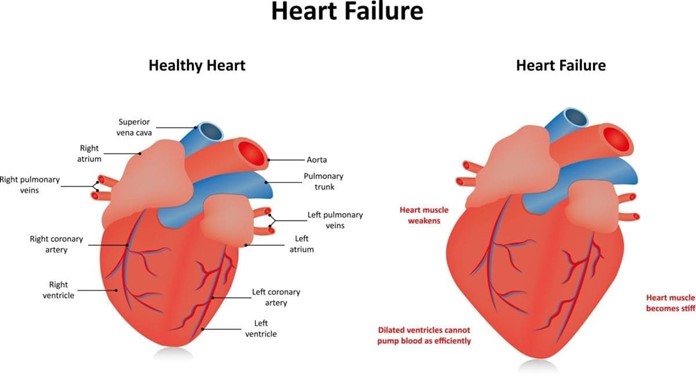A client with heart failure (HF) develops hyperaldosteronism and spironolactone is prescribed. Which instruction should the nurse include in this patient’s plan of care?
Replace salt with a salt substitute.
Limits intake of high-potassium foods.
Cover your skin before going outside.
Monitor skin for excessive bruising.
The Correct Answer is B
Spironolactone is a potassium-sparing diuretic that works by blocking the actions of aldosterone, a hormone that can lead to potassium loss in the urine. However, in some cases, spironolactone can cause hyperkalemia (high levels of potassium in the blood), which can be dangerous for patients with heart failure. Therefore, it is important to instruct the patient to limit their intake of high-potassium foods such as bananas, oranges, tomatoes, spinach, and salt substitutes containing potassium.
Option a (Replace salt with a salt substitute) is incorrect because salt substitutes often contain potassium, which can further increase the risk of hyperkalemia.
Option c (Cover your skin before going outside) is unrelated to the use of spironolactone and hyperkalemia.
Option d (Monitor skin for excessive bruising) is not directly related to the use of spironolactone and hyperkalemia, although it is a potential side effect of other medications used to treat heart failure.

Nursing Test Bank
Naxlex Comprehensive Predictor Exams
Related Questions
Correct Answer is C
Explanation
Ipratropium is a medication used to treat chronic obstructive pulmonary disease (COPD)1. When using an ipratropium inhaler for the first time or if it has not been used for a while, it is important to prime the inhaler by spraying it into the air away from your face1. However, the inhaler only needs to be primed with 2 sprays, not 71. If the client primes the inhaler with 7 pumps, it indicates that additional teaching is needed.

Correct Answer is D
Explanation
Anaphylaxis is a severe and potentially life-threatening allergic reaction that occurs rapidly after exposure to an allergen. The symptoms of anaphylaxis can vary but usually involve multiple organ systems, including the skin, respiratory, cardiovascular, and gastrointestinal systems.
Wheezing and dyspnea are two common symptoms of anaphylaxis that indicate the respiratory system's involvement.
Urticaria and pruritis are skin manifestations that can also be present in anaphylaxis, but they are not specific to this condition.
Insomnia and irritability are not typical symptoms of anaphylaxis.
Tinnitus and diplopia are also not common symptoms of anaphylaxis.

Whether you are a student looking to ace your exams or a practicing nurse seeking to enhance your expertise , our nursing education contents will empower you with the confidence and competence to make a difference in the lives of patients and become a respected leader in the healthcare field.
Visit Naxlex, invest in your future and unlock endless possibilities with our unparalleled nursing education contents today
Report Wrong Answer on the Current Question
Do you disagree with the answer? If yes, what is your expected answer? Explain.
Kindly be descriptive with the issue you are facing.
